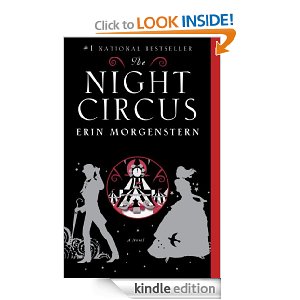 I read voraciously, and I read in many genres. I love books written with passion, but I don’t always love passionate writing. By that I mean—be crafty with how you deliver your descriptions, because I don’t want to be told what to think.
I read voraciously, and I read in many genres. I love books written with passion, but I don’t always love passionate writing. By that I mean—be crafty with how you deliver your descriptions, because I don’t want to be told what to think.
In various writing forums I regularly see authors complaining that Beta Readers don’t understand their ‘voice.’
Several things could cause that disconnect:
- The person who agreed to Beta Read for you does not read your genre, and genuinely does not like the kind of books you write. This happens all the time, so find a reader who enjoys romantic, urban fantasy, if that is what you write. A woman who reads hard sci-fi likely won’t love a fantasy-romance involving elves and vampires.
- Also, perhaps the person reading as a Beta Reader does not understand that Beta Reading is NOT picking a manuscript to shreds, it is giving general opinions on the manuscript as a whole. This is why I am selective as to who I share a manuscript with—the reader must be familiar with and read my genre, and understand the rules for Beta Reading, as set down by Orson Scott Card.
- We also must consider the possibility that we are mistaking lazy writing habits for voice. We love our glorious, elegant prose, but our reader was not as impressed. I hate it when that happens!
I had a conversation with an author who said, “My editor wants to change my voice. She won’t let me use ‘there was,’ but I don’t know how to tell my story without using it.”
She was not trying to change his voice, she was trying to encourage him to be creative and to write strong sentences. Weak prose tells the story, holds the reader away from the immediacy of the experience.
Passive voice also tells a story, but when done well, it can be beautiful and immersive.
What is passive voice? I absolutely adore this paragraph from the American Bar Association website article “Writing Clear and Effective Legal Prose” by George D. Gopen:
“Lawyers cannot write sophisticated, powerful prose without a skillful use of the passive voice. I could offer you a theological proof: God would not have created the passive had it no use. Or perhaps you might prefer the Darwinian argument: The passive could not have survived unless it was fittest for something. But I prefer this circular reasoning: The passive is better than the active in all cases in which the passive does a better job than the active. It only remains to learn what those cases are.”
Notice how he meanders through that thought, but eventually arrives at the point? He never devolves into weak prose. This is also the way many new authors approach writing genre fiction, and is where they run afoul of their readers. Readers of genre fiction expect lean, action-oriented prose driving each scene toward a final conclusion.
So now we come to another point—what is GENRE FICTION? Modern genre fiction avoids passive voice, opting for active, pared-down sentences that have one purpose—resolving a conflict. Literary fiction often uses passive voice, but knows how to apply it correctly. Literary fiction takes the reader on a journey, often where they witness events as seen through other eyes. Both styles of writing have to be carefully crafted, and both must immerse the reader in the experience. Stephen Petite, in his article, “Literary Fiction vs Genre Fiction” says:
“An argument can be made that there are two types of fiction when it comes to novels: Genre Fiction and Literary Fiction. The former includes many subcategories such as Mystery/Thriller, Horror, Romance, Western, Fantasy, Science Fiction, etc. The latter is more difficult to classify or break apart into subcategories. To put it simply, Literary Fiction is anything that does not fit into a genre.”
The fact that literary fiction is anything that does not fit into a genre offers authors the option of writing in a more leisurely style, if that is their desire. However—do not mistake bad craftsmanship for literary style.
I read genre fiction for entertainment, for a riveting story, an escape from reality.
Literary fiction is not about escaping from reality. It seeks to better understand the world and delivers real emotional responses, often though situations that are rooted in fantasy. I often read and enjoy literary fiction.
 Do you see the crossover there? Some fantasy qualifies as literary fiction because of the way in which the story is delivered. Erin Morgenstern’s beautiful fantasy, The Night Circus is a perfect example of this cross-over. Genre fantasy purists decry her lush, beautiful prose, and lack of direct conflict between the two magicians, while readers of literary fiction enjoy her lush, beautiful prose, and the deeper story that underlies the politely waged war between two magicians.
Do you see the crossover there? Some fantasy qualifies as literary fiction because of the way in which the story is delivered. Erin Morgenstern’s beautiful fantasy, The Night Circus is a perfect example of this cross-over. Genre fantasy purists decry her lush, beautiful prose, and lack of direct conflict between the two magicians, while readers of literary fiction enjoy her lush, beautiful prose, and the deeper story that underlies the politely waged war between two magicians.
Know who your readers are. Select your beta readers from people who read in the genre you think you are writing for. It’s likely you are writing for yourself, so identify the sort of books you gravitate to, and choose your readers accordingly. If you’ve chosen the right beta readers, you will also know what your chosen market will be.








Great posts Connie! I love to hear other perceptions on this topic. I write both and they are very different styles. I have to be careful that my sometimes passive voice doesn’t slip into my genre writing. People can spot it instantly.
LikeLike
@ SK– I know! I have the same problem!
LikeLike
This comment has been written by a passive commentator.
Furthermore, it has been said by many, that literary fiction rocks!
LikeLike
It does rock, Sir Stephen the Bold!
LikeLike
Hm. I might just have to check out ‘The Night Circus’.
LikeLike
@Deborah–I enjoyed it a great deal, but as you know, I do read read a lot of literary fiction.
LikeLike
An amazing post.
LikeLike
Thank you Tim ♥
LikeLike
A really wonderful column!
LikeLike
Thank you Alison–I know you enjoy more leisurely reading at times too!
LikeLike